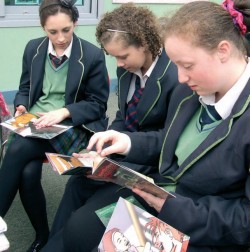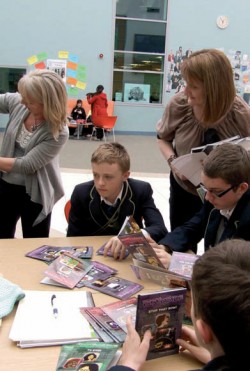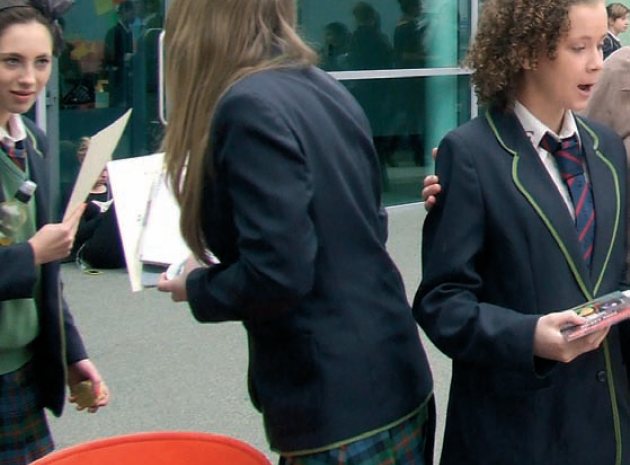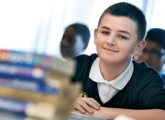School profile location: Bradford
Pupils: 1200, from 3-18
Without an age-appropriate reading level, accessing the curriculum can be an impossible task at Y7 and beyond. Nicky White explains how a specially developed literacy intervention programme is helping to stop students at her school slipping through the cracks…
When we first opened the doors of Bradford Academy in September 2007, we were faced with more challenges than most. About a quarter of students in Years 7-11 arrived speaking English as an additional language. The proportion of young people with special educational needs and/or disabilities is above average, and consequently the percentage of students with statements is more than twice the national average. 15 per cent had a reading score below national curriculum Level 3.
Despite our first Ofsted report in 2009 judging us to be thriving under a dynamic and resolute leadership team, it did highlight a need to boost the literacy skills of a significant proportion of the students through enhanced provision.
Five years ago, when I started teaching here, many students were below National Curriculum level 2 – and a staggering 30 per cent were below Level 1. We began by using best practice models but it soon became clear that the level of many of our students meant that they had virtually no understanding of phonics.
We employed a High Level Teaching Assistant (HTLA) three times per week to work with our Year 7 Level 2 and 3 readers on synthetic phonics using the Ruth Miskin literacy programme; this resulted in a good level of progress. Students started developing their understanding of how to use phonics to read and we soon saw an improvement of on average two places in a year.
However, despite the programme being effective with the Year 7 learners, the lack of age appropriate resources led to a definite decline in motivation when they entered Year 8. The children found the storybooks babyish and were embarrassed to be seen reading them. They clearly needed a variety of introductory reading activities with plenty of repetition so that learning could become embedded.
It was also clear that our secondary level subject teachers were highly skilled at teaching their own curriculum area but had never been trained to teach early reading. The next step therefore was to provide CPD to all staff on strategies and techniques to use with emerging readers and writers across the curriculum. Even within the English and SEN departments we recognised that any reading intervention scheme adopted would need to have strong teacher support material for our teachers and teaching assistants.

Getting with the programme
We looked around a few publishers and eventually decided that Rising Stars offered the closest fit to what we wanted in terms of existing materials, but also in the team’s willingness to work collaboratively to produce something new and exciting to fit the needs of these older students; although I have to admit that at the time I don’t think any of us knew exactly what we wanted!
The work started. Together, we broadly scoped out our requirement for a reading scheme with phonics at its heart so our students could learn to blend, segment, skim and scan, and could regularly rehearse these skills until they become effortless. Rehearsal and repetition needed to be a core part of their learning.
Another important part of the process was to include the students themselves in the planning, listening to their specific needs. What was particular interesting was that despite living in an era where technology is the new currency for learning, we found that while ebooks are useful, our students still craved ownership of a physical printed book to take home like their peers.
When we asked them about the type of stories they liked they all mentioned television programmes including Waterloo Road and Coronation Street. They could relate to the characters and were engaged in the story line as it grew. It was therefore agreed that we wanted a reading scheme like a soap opera; something where the students could engage with the same characters across the range of books, at their own level.
And so Dockside was formed: a block of flats in a town on the outskirts of a city where the core characters have their own personalities and issues, things that our students could relate to and engage with.
Rising Stars started to develop a series of plausible stories that started at Level one. The first few lessons worked systematically through the teaching of phoneme/ grapheme correspondences before the books at Stage 1 began to provide decodable texts using what the children knew to ensure success.
Over the months, at each stage of development we would work with the latest draft material – our students, HLTAs, nasen (National Association of Special Educational Needs) and SSAT (The Schools Network) providing feedback and if necessary, suggestions for change. We worked as a team to revise the literacy intervention scheme, ensuring that the books were the right length to keep students engaged.
We assess our students every half term and have already seen them grow in confidence – to date they have all made significant progress in terms of their reading age. The vast majority have made more than six months’ progress, with some moving on 18 months.

Dockside was a breath of fresh air for the students. Looking ahead we will need to ensure that the momentum currently built up continues; my passion is to ensure that no child will leave Bradford Academy unable to read and write. We want to take non-readers to a level of functional literacy so that they can participate in, and benefit from, the wider curriculum and flourish as adult learners. Our students may not have had a good start in life but many have ‘hidden’ skills and areas of excellence that if recognised, developed, respected and nurtured can transport them from a life of poverty to one of fulfilment and lucrative independence from state support.
42%
Of boys aged 11-16, and 38% of girls never read books for pleasure (source: childwise)
About the expert
Nicky White is assistant vice principal at Bradford Academy











“We want to take non-readers to a level of functional literacy so that they can participate in, and benefit from, the wider curriculum and flourish as adult learners”